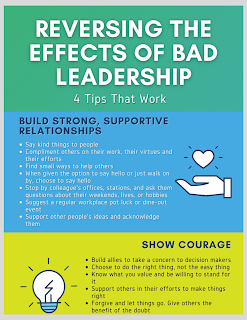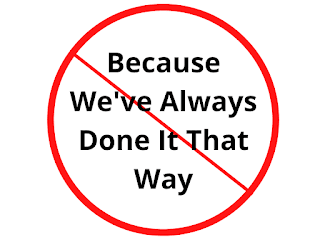The toxic leadership cycle - why do we continue to create poor leaders?
What does it take to be a leader?
We can all answer it. We have all been to conferences and training sessions where trainers and delegates alike reel off the values and skills and actions needed to be a ‘good’ leader.
Think of the best leader you’ve ever worked for. Seriously, do it now and say their name out loud. They embody all of those values, don’t they?
Similarly we all know the traits of a bad leader too. We can probably even name them too.
So why do we still hear of toxic schools with toxic leadership? Leaders who feel they need to micromanage, who blame rather than take responsibility and who lack long-term vision.
Why are we still creating poor leaders if the elements to make a good one are universally agreed?
The problem is that poor leaders are already in leadership roles, we see them behaving in a certain way and we mimic it because we feel that’s the way it should be done. That’s what you have to do when you’re a leader. That’s the way to get the role.
They aren’t all bad people. They’re just so wrapped up in short term wins that they neglect the long term.
Introducing the team to the shiniest new thing (which is often just something that we’ve done, and discarded before) without recognising how it fits into longer term priorities; micromanaging the team because they know how to do the role better; getting rid of those who don’t conform rather than investing time to coach and provide appropriate CPD.
We see these actions and think that’s the way it needs to be done. We can only be what we can see, remember.
But it doesn’t.
We need to break the cycle.
There are some very obvious cases of these brilliant leaders who would sacrifice themselves for their team, who have BIG vision and an unwavering commitment to drive towards it.
Unfortunately they aren’t the majority.
We need to change the narrative and it is up to leaders and those aspiring to be, to get the bull by the horns and get comfortable being uncomfortable.
Some of this is a training issue - we have between 1 and 4 years training to be teachers and then get promoted into roles where we have responsibilities for others, without any formal training at all.
Nothing changes without us taking responsibility for our own actions. Your responsibility is to help your leaders to be better. Your responsibility is to lead people properly.
If someone is doing something ‘wrong’, why is “I mustn’t have shown them properly,” not the leader’s first thought? Maybe you weren’t clear enough, maybe you’re not considering the impact, maybe, just maybe, YOU were wrong.
We only change things by making a commitment to doing things differently and doing it authentically.
Everyone will benefit.



Comments
Post a Comment